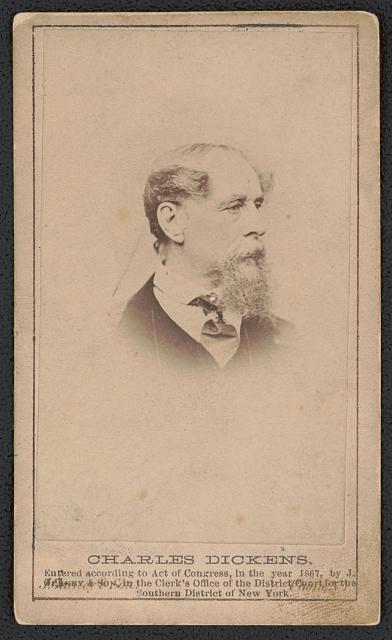Children, Gray Hair, and Wrinkles
As I have mentioned before, I enjoy listening to audio books. When our children were at home, the best “audio book” was Ray reading aloud to all of us, but we enjoyed audio books, too. The Little House, Narnia, and Winnie-the-Pooh series were favorites.
I realize that my opportunity to listen to audio books in the way I do now is a privilege. Now I can listen while I do laundry and while I’m cooking supper, for example. That wouldn’t have worked when I had little ones under my feet because back then my ears needed to be accessible to their questions and musings and joys and tears. Now that our children have their own little ones under their feet, I can listen to books on my cell phone and still be available for my children’s questions and musings and joys and tears, because the book stops when they call or text.
When I finished my last book and pondered what to listen to next, I decided on Bleak House by Charles Dickens.

I had serious misgivings. Did I really want to listen to something with bleak in the title? Now that I am midway through it, I am seriously hooked.
Yesterday I came upon a passage that I wanted to share with you. The character George Rouncewell (also called “the trooper”) has just found out that his creditor is no longer going to extend his loan. The day of reckoning has come. Mr. and Mrs. Matthew Bagnet are George’s friends. Through their generosity, they have gotten mixed up in George’s trouble and he is in anguish about hurting his friends.
While George visits in the home of Mr. and Mrs. Bagnet and their children, he gives advice to the Bagnets’ son Woolwich (Woolwich plays a fife, so Rouncewell also calls him “the fifer”).
This is how Dickens told the story in chapter 34 of Bleak House.
In giving Mrs. Bagnet’s hand, with her work in it, a friendly shake—for she took her seat beside him—the trooper’s attention is attracted to her face. After looking at it for a little while as she plies her needle, he looks to young Woolwich, sitting on his stool in the corner, and beckons that fifer to him.
“See there, my boy,” says George, very gently smoothing the mother’s hair with his hand, “there’s a good loving forehead for you! All bright with love of you, my boy. A little touched by the sun and the weather through following your father about and taking care of you, but as fresh and wholesome as a ripe apple on a tree.”
Mr. Bagnet’s face expresses, so far as in its wooden material lies, the highest approbation and acquiescence.
“The time will come, my boy,” pursues the trooper, “when this hair of your mother’s will be grey, and this forehead all crossed and re-crossed with wrinkles, and a fine old lady she’ll be then. Take care, while you are young, that you can think in those days, ‘I never whitened a hair of her dear head—I never marked a sorrowful line in her face!’ For of all the many things that you can think of when you are a man, you had better have THAT by you, Woolwich!”
These are some of the ways that God’s Word instructs children of all ages to do what George Rouncewell encouraged young Woolwich Bagnet to do.
A wise son makes a father glad,
But a foolish man despises his mother.
Proverbs 15:20
Listen to your father, who fathered you,
And do not despise your mother when she is old.
Proverbs 23:22
Let your father and your mother be glad,
And let her rejoice who gave birth to you.
Proverbs 23:25

